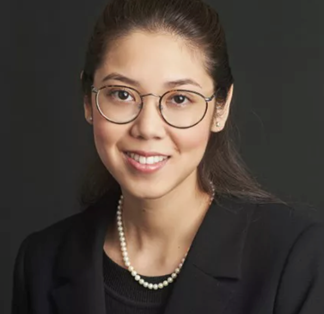Zoe Bantleman
Legal Director at ILPA

Zoe has recently joined ILPA as Legal Director. Prior to joining ILPA Zoe was a barrister at Richmond Chambers, with a busy practice in immigration, nationality and asylum law. She has significant experience in private and family life and complex points based applications under the Immigration Rules. She regularly challenged decisions by preparing appeals for human rights and asylum claims and applications for administrative and judicial review, with specific interest in challenging deception allegations against migrants and prospective visitors, sponsor licence revocations and claims deemed to be repeats or certified as clearly unfounded. Zoe is also a contributing author to Practical Law, and an editorial board member of the Journal of Immigration, Asylum & Nationality Law.
Zoe's Upcoming Training
This training session will cover section 3C of the Immigration Act 1971, as well as validation, variation and withdrawal of applications. It will be focused on practical tips and issues encountered when advising and preparing applications.
Following the changes in the Immigration Rules on 1 December 2020, there are separate validity requirements for certain routes. It is now extremely important to abide by these, as an invalid application will not extend leave under section 3C of the Immigration Act 1971.
The effects of section 3C of the Immigration Act 1971, including when it is engaged and when it has come to an end, are crucial to understanding whether an applicant has continuous lawful residence and to ensure that an applicant does not overstay and become the subject of hostile environment measures.
It also continues to be important to understand the mechanism for varying and withdrawing applications and the impact on continuity of residence and refunding of application fees.
The training will also run through common scenarios that the tutor has come across in practice in preparing and advising on applications.
Topics to be covered include:
• What are the new validity requirements and how do they differ from the previous requirements?
• What is section 3C?
• When is section 3C triggered and when does it continue to extend leave?
• How do you vary a pending application?
• Is there a difference in effect between withdrawing and varying?
• How does varying an application affect leave extended by section 3C?
• What validity requirements must be complied with, in order for an application extend section 3C leave?
• What conditions apply when section 3C is engaged and an application is pending?
• When does section 3C come to an end?
Zoe's Past Training
Tutors: Gabriella Bettiga, MGBe Legal and Zoe Bantleman
Barrister at Richmond Chambers
This course will focus on the legal framework, procedure and practical steps in preparing further representations.
Topics:
· Legal framework
· Standard of proof
· Advice to clients
· Pitfalls and common errors
· Procedure
· Overview of post-refusal remedies
Tutors: Zoe Bantleman and Alex Papasotiriou, Richmond Chambers
The focus of this course will be on providing an overview of the legal framework for indefinite (and limited) leave to remain on the basis of 10 years of continuous lawful residence. The Webinar will cover practical tips in advising on and preparing these indefinite leave to remain applications and appeals.
Recent case law in Juned Ahmed, Masum Ahmed and most recently Hoque & Ors has made continuous lawful residence a difficult area on which to advise. This Webinar will bring the audience up to date on the import of the recent Court of Appeal case law and explain the distinction drawn between previous and current overstaying for applicants and appellants.
The effects of section 3C of the Immigration Act 1971, including when it is engaged and when it has come to an end, are crucial to understanding whether an applicant or appellant has continuous lawful residence. Additionally, understanding how the exception to overstayers in paragraph 39E can affect whether an applicant can meet the requirements for continuous lawful residence is also important. Both of these areas of law will be covered in the Webinar.
The Home Office policy guidance document titled Long Residence provides for the exercise of discretion where breaks in continuous or in lawful residence occured due to compelling or exceptional circumstances. The Webinar will explore the manner in which the existence of such circumstances can be argued and demonstrated.
The Webinar will also run through common scenarios that the tutors have come across in practice in preparing these applications and appeals, and provide an overview of the process including the fees and timeframes.
Topics to be covered include:
● When is the earliest an applicant can apply?
● What evidence should be included in an application?
● Has section 3C extended leave?
● When is there a break in lawful residence?
● Is the residence continuous?
● What is the effect of paragraph 39E for a long residence application?
● Should discretion be exercised over excess absences or breaks in lawful residence?
● How are the general grounds for refusal relevant?
● What application should family members make?
● How has recent case law changed the interpretation of the Rules?
● Can long residence be relied on as a new matter in an appeal?
● What other grounds should be raised in a long residence appeal?
● What evidence should be included in an appeal?
9:45-10:00 Registration
10:00-11:00 Part 1 – Rules, Guidance and Case Law, in particular discussing section 3C of the Immigration Act 1971 and paragraph 39E of the Immigration Rules
11:00-11:30 Case studies on advising clients and group discussion
11:30-11:45 Break
11:45-12:15 Part 2 – Application Preparation Process and Tips
12:15-12:45 Part 3- Appeal Preparation Process and Tips
12:45-13:00 Group Discussion and Q&A
